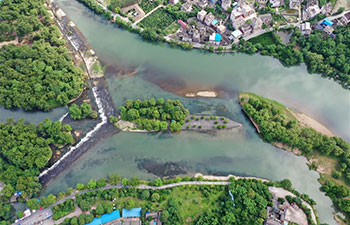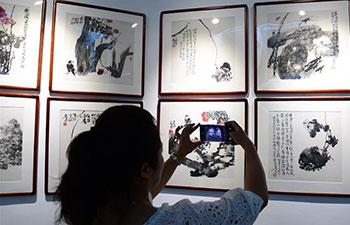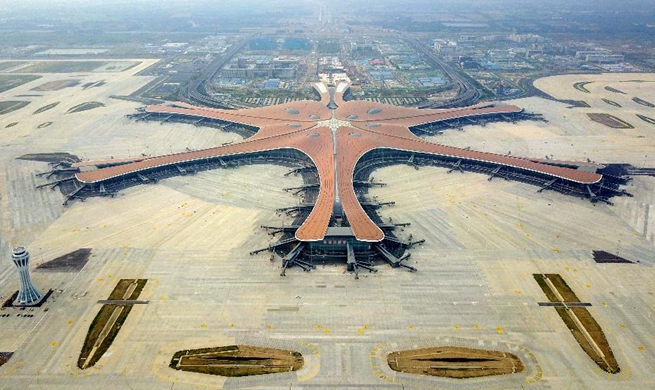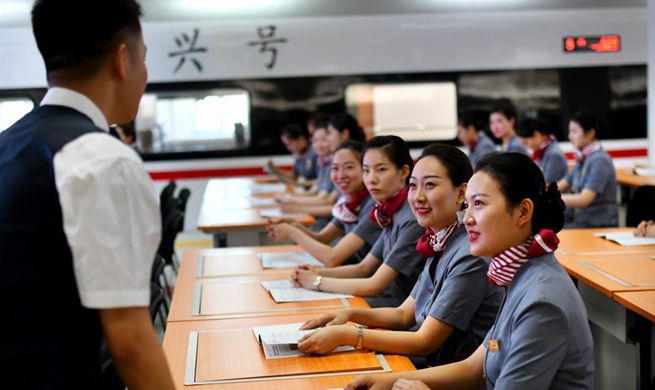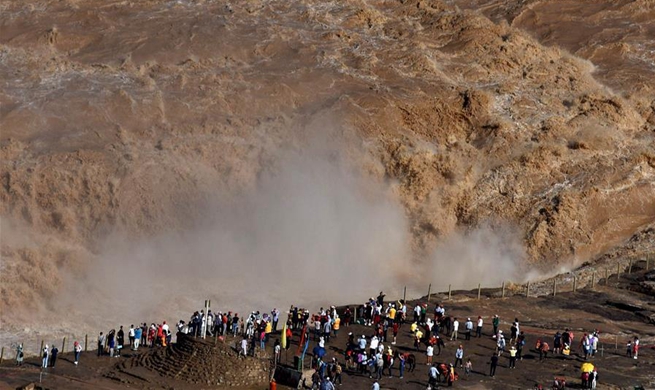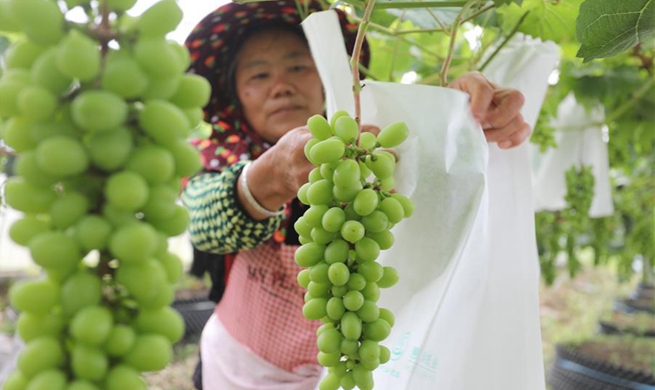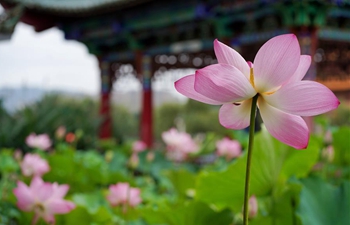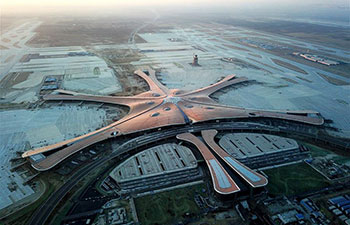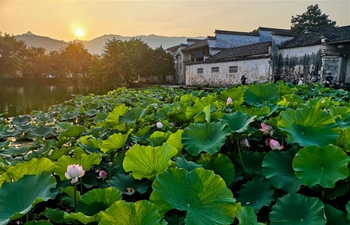WASHINGTON, June 30 (Xinhua) -- Materials scientists in the United States designed a more efficient water distiller that may provide all the drinking water one family needs in water-deficient areas.
The study published in the latest edition of Science Advances showed that a water-absorbing solar still, topped with a mixture of gel-like polymers, could produce clean water from dirty or salty one 12 times the amount produced by today's commercially available versions.
A traditional solar still is a black-bottomed vessel filled with water and topped with clear glass or plastic. The black bottom absorbs sunlight to evaporate water and leave the contaminants behind. However, its efficiency is so low that only about 0.3 liters of water per hour per square meter can be produced, according to the study.
Scientists led by Yu Guihua with the University of Texas in Austin developed a 3D porous water-absorbent network, placing atop the solar stills. It is a gel-like sponge with two polymers, with one polymer called PVA binding the water and the other called PPy to absorb light.
Inside the gel, a layer of water molecules are bonded tightly to the PVA but loosely to nearby water molecules, thus creating so-called "intermediate water" that evaporates more readily than regular water, according to the study.
Then, Yu's team added a third polymer called chitosan into the gel, allowing the gel to hold more intermediate water.
A solar still using this new hydrogel can distill water at a rate of 3.6 liters of water per hour per square meter, the highest rate ever reported.
At this rate, a solar still with one square meter in size could produce about 30 liters of clean drinking water per day, enough for a small family.
Also, the three polymers are both commercially available and cheap, so it has the potential to provide millions of impoverished people access to clean drinking water, according to the researchers.
Now, about 783 million people around the world lack access to clean drinking water, according to the United Nations Children's Fund.




